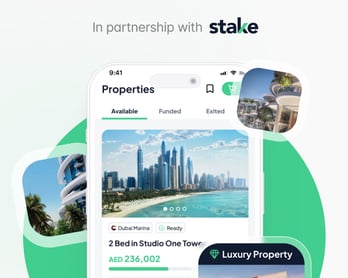The largest Blockchain smart contract platform Ethereum is moving towards Proof of Stake consensus from Proof of Work. This period of time is a pivotal point in the decentralized network’s history as the network has processed an excess of $1 trillion USD in the past year alone. It is the second heaviest traded crypto asset and in turn, requires high levels of security and decentralization. Currently 10 million ETH (20 billion USD) is staked securing the network for attesting blocks. The ETH which is staked in the contract is unusable for DeFi. Even as synthetic providers enter the market, the key issues of the current pool-based models using an oracle and highly manipulable liquidity present a house of cards that puts the entire Ethereum blockchain in jeopardy.
Once the transition to Proof of Stake is complete, there will be a large revenue stream available to those staking ETH. This opens up not only cash flow and staking rewards but transaction ordering. Currently, PoW systems are collecting the network revenue cash flow. Many users are forgoing potential future rewards by selling their ETH for synthetic ETH and forgoing ownership and decentralization of the network for a short-sighted 5% APY yield.
To truly secure the network the revenue of the Ethereum network must remain decentralized and available to the everyday user. This is where Blockswap comes in by incentivizing everybody involved in DeFi to participate in the staking process.
About Blockswap
Stakehouse wants to align liquid staking with the ideals of the Ethereum Foundation. That means Stakehouse is looking to become a public benefit infrastructure by being a permissionless and immutable smart contract suite deployed on the Ethereum Blockchain. The Stakehouse contract suite will be available to users as long as the Ethereum Blockchain is available. Stakehouse is fully trustless with no counterparty risk. A user who is interacting with Stakehouse is assigning a smart contract to perform a predefined set of actions on behalf of him/her, and in return, the protocol gives a token as proof of ownership.
Throughout crypto communities, a murmur is arising asking the question.
“Who owns your staked asset when using a liquid staking service?”
Where current liquid staking providers dance around this topic, Stakehouse can give a very direct answer.
“The user who owns the token owns the staked asset.”
Key Benefits of Stakehouse:
Slashproof liquid staked ETH (dETH) where 100% of the rewards earned go to the user. Because there are 24 and not 32 dETH a user gets 25% more rewards than typical staked ETH. The user is paying 0 commissions because it is not owned by anybody besides the user.
dETH is fully fungible and will never require a rebase. It doesn’t pool liquidity. It doesn’t use an oracle.
Liquid validator ownership tokens collecting all network revenue including gas fees and MEV rewards. Again Stakehouse collects 0 commissions because Stakehouse does not touch the users ETH or derivative tokens.
100x faster process to become a validator. It only takes 60 seconds to stake an ETH validator and requires NO prior knowledge.
Stakehouse doesn’t require any token to use the protocol beyond ETH for staking.
Team, Advisors, and Investors
Stakehouse protocol is developed by Blockswap Labs, a cross chain blockchain development team that is rooted in the Proof of Stake ecosystem. Labs is an independent entity from Blockswap Network as a non privileged active contributor. Stakehouse will be deployed and maintained by Blockswap network, a DAO controlled by its tokenholders. Blockswap Network has no influence on Stakehouse assets or operations. It only provides governance and continuous maintenance for Stakehouse adoption and tools for wider PoS networks and chains.
Blockswap Network is supported by industry-leading pioneers believing in the long-term mission and vision of a democratized Proof of Stake blockchain. This is a mix of heavy-weight institutional and crypto investors, advisors, community ecosystem advocates, and protocols.
The community has played a large role in Blockswap. They helped the Blockswap team perform the largest cross chain testnet amassing 24,000 validators from 24,000 unique stakers for stress testing core contracts.
How Does Blockswap Work?
Stakehouse is a ground-up new design setting a new standard for smart contract framework. The contracts are based on the idea of self-organizing registries which are fully compatible for multichain asset portability without an intermediary. This means that a user can take his/her dETH to any rollup or L1 chain without a bridge. For the first time in blockchain history, a smart contract protocol will allow multichain composability
Every liquid stake derivatives issued via Stakehouse has an atomic dependency with staked ETH validator on Consensus layer with 100% redeemability at any time.
Staying true to the idea of user owned assets, Stakehouse utilizes only on-chain data which is publicly verifiable and deterministic. There is NO ORACLE, NO POOLING of your assets with other people, NO BRIDGE, and is gas efficient. You always keep YOUR ETH, and you can use it to make MORE ETH, while participating in any DeFi opportunities.
The programmable middle layer that is Stakehouse allows for communication between the execution layer (current Ethereum chain) and consensus layer (PoS Beacon chain). What this means for the user is that they can now stake their ETH via the Ethereum Deposit Contract and bring the ETH back to Ethereum and make it a liquid ERC20 token. A user now holds their staked ETH while also being able to utilize their staked assets in DeFi. The process is automated through smart contracts and can be done in a few clicks.
This means a user can do the following all in under two minutes.
Send ETH to the Ethereum Deposit Contract
Own full validator rights
Own liquid staking (dETH) and liquid validator tokens
User-owned assets that are connected to both the execution and consensus layer mean the user can redeem and withdraw their assets when the Ethereum Foundation allows for withdrawals. This is revolutionary. A user can now own their validator, own their liquid stake and have the option to redeem THEIR derivative ETH for THEIR validator ETH. Even if another user doesn’t care about selling their ETH to synthetic staking or being able to reclaim their ETH, paying 0 commissions compared to the industry standard 10% should be enticing.
What Problem Does Blockswap Solve?
Only about 10% of all Ethereum is staked. As Ethereum comes closer to the merge which will take it from PoW to PoS, the demand for Staked Ethereum will increase. Around this time the Ethereum Foundation will enable withdrawals. When enabled, users will want to stake and unstake their ETH freely. The demand for liquid assets, which are yield-bearing and have a direct claim to the underlying token, will increase. Stakehouse will make this process available to mainstream users. The result will be the simplicity of staking and enabling network positive effects while using the protocol.
Stakehouse is designed as a commissionless, immutable, and no rent-seeking public benefit infrastructure. These are key elements required for developers to build. As yield bearing assets with a direct claim to the underlying proliferate, those creating DeFi protocols will lean on a programmable asset to develop DeFi 2.0 products. The programmable derivative assets allow people to create sustainable financial solutions for end-users.
Some products that can be built include the following.
Fixed income stable coins
Money markets
Algorithmic treasury diversification for DAOs
Cashflow based products
Options markets for long term capital deployment
Stakehouse enables high-frequency ETH use cases for DeFi users that are on par with centralized exchanges. This is possible because the registry framework tracks each asset individually and preserves its full composability. Users can now use Stakehouse information rather than smart contract operations that require paying enormous gas fees.
Institutions are now able to access liquid staking. Derivatives from Stakehouse are not deemed a collective investment scheme. This is because the registry can reconcile ETH staked in a validator to the derivative ERC20. Users own their own assets and are not pooling their ETH with other users.
The Blockswap Token
The project currently has a community token. This community token will convert to mainnet tokens when the DAO is launched.
Blockswap Network will have a token for its protocols’ governance, continuous development, adoption, and maintenance. However, no token has been released yet.
The mainnet token will be BSN. BSN will be the voting power for the Blockswap DAO.
Unique Features
Stakehouse is a ground-up new public interest infrastructure. It is 5,000 lines of unforked code and does not resemble any other DeFi products (besides in looks).
Stakehouse is an automated market maker for staked assets. This is done by creating a registry of validators in the Beacon Chain. Users are able to interact with derivative tokens rather than the Beacon Chain directly. This allows for the same value extraction as owning a validator. Stakehouse can be seen as providing both a liquid stake and liquid validators to the market. Other protocols may claim to have one or both of these assets but they are done through collective investment schemes which make them unusable by many institutional investors and require impossibly deep liquidity.
When somebody fully understands what is going on with Stakehouse, they’ll understand that every feature is unique and that the protocol succeeds by everybody looking out for their own best interests.
Multichain composable assets are the future and open the world up to DeFi 2.0. Assets should always be redeemable for their underlying and not require a bridge to go between blockchains.
A Look Ahead
Blockswap is positioned to become the premier multichain fixed income ecosystem harnessing the power of PoS networks. The end goal is to empower long-tail users by onboarding them to blockchain ecosystems through meaningful products.
Being a multichain protocol, Blockswap stands for building a value-based economy with solutions utilizing and delivering a fully composable infrastructure layer. To do this, the team will be delivering protocols as legos which can be utilized in part or in full by various DeFi ecosystems and protocols.
Stakehouse is the first protocol and is the baselayer for all future DeFi 2.0 products built by Blockswap and other development teams. Once deployed, the team can focus efforts on creating new products. Stakehouse will be released in the next few months for mainnet use.
Open Saver is a savings protocol delivering an interest-bearing stable coin to the masses.
This isn’t all the team has planned. Keep an eye on Blockswap for the most cutting-edge multichain fixed income products.



 Oops! We couldn’t find any results...
Oops! We couldn’t find any results...







